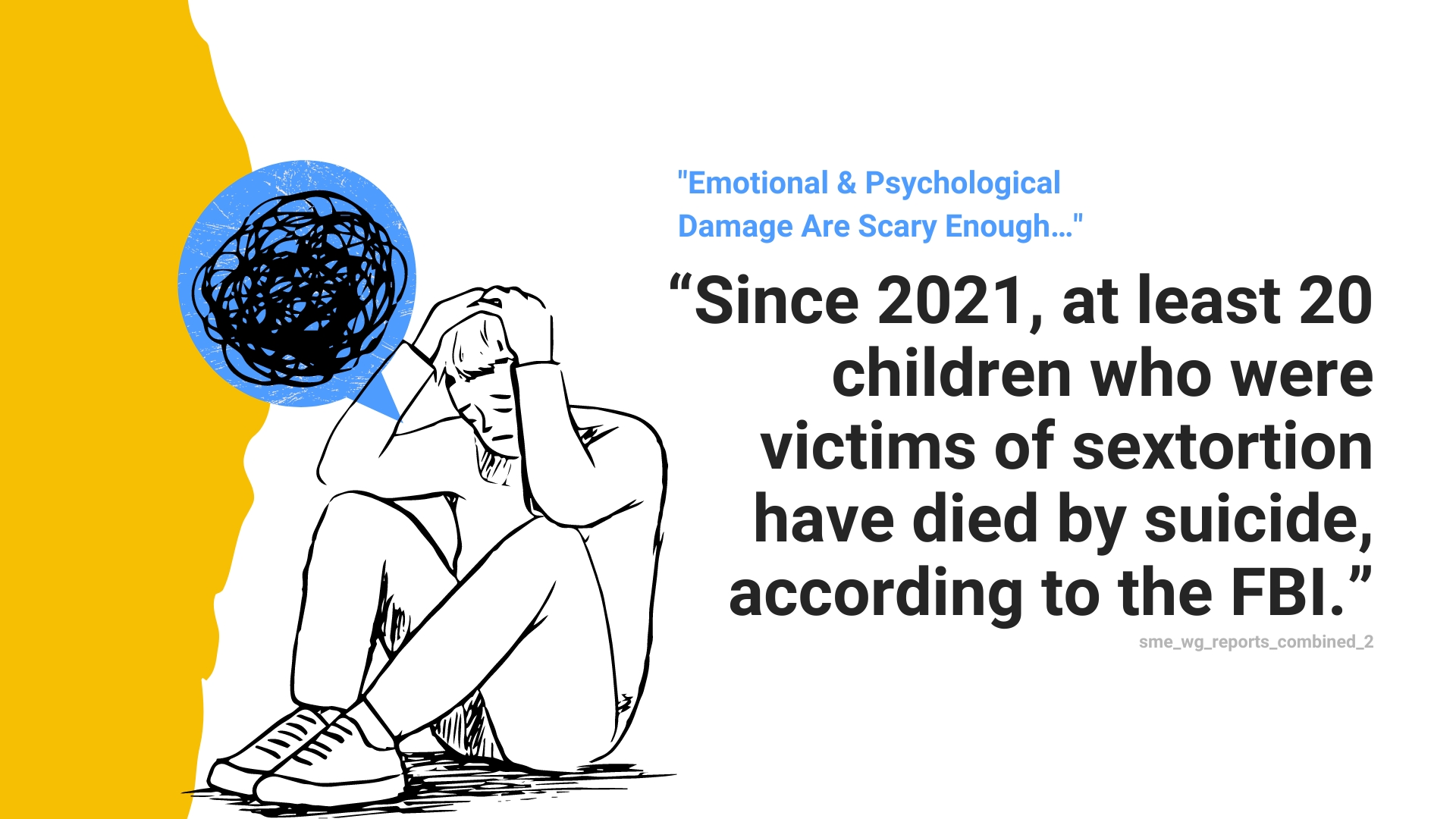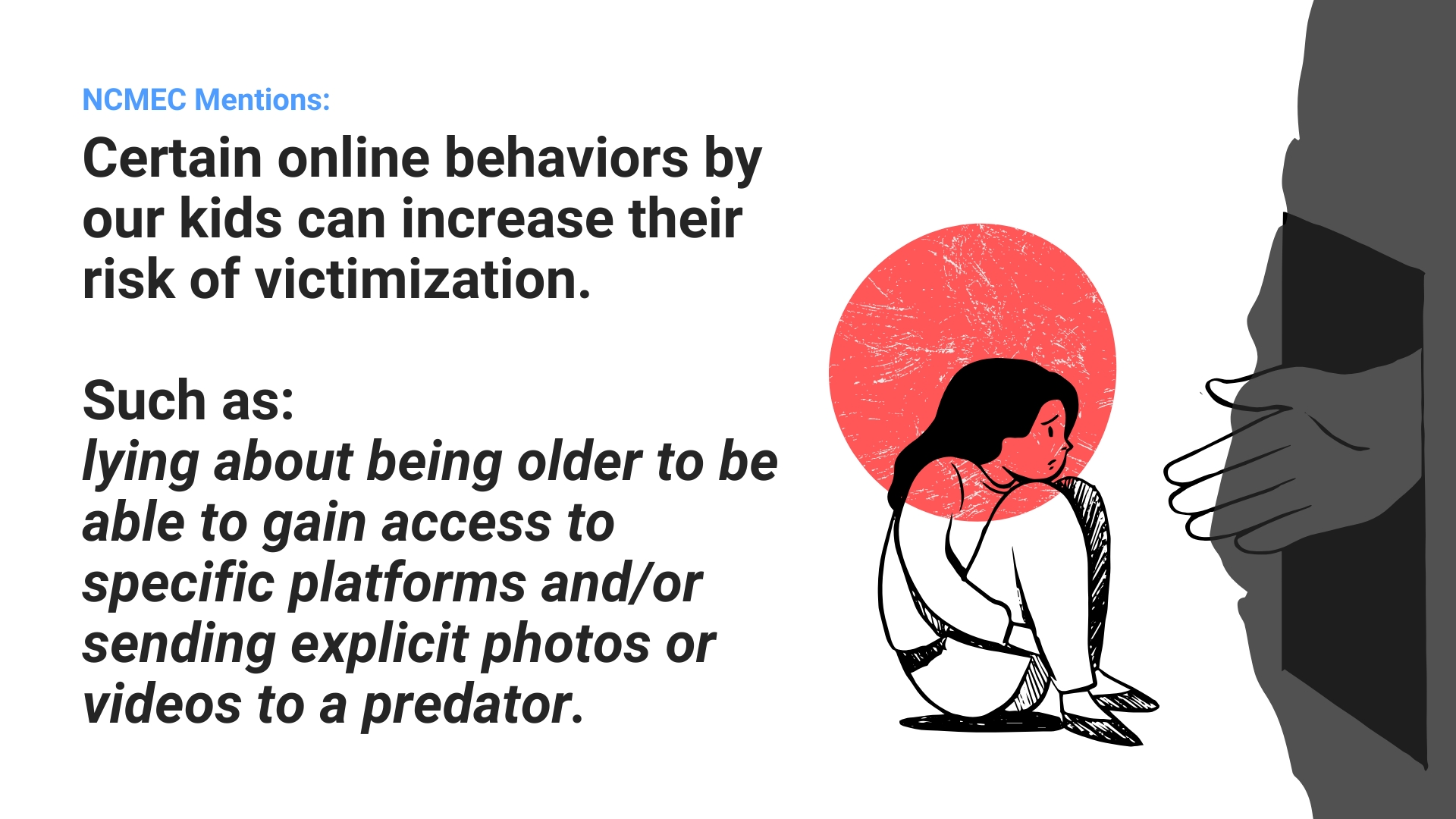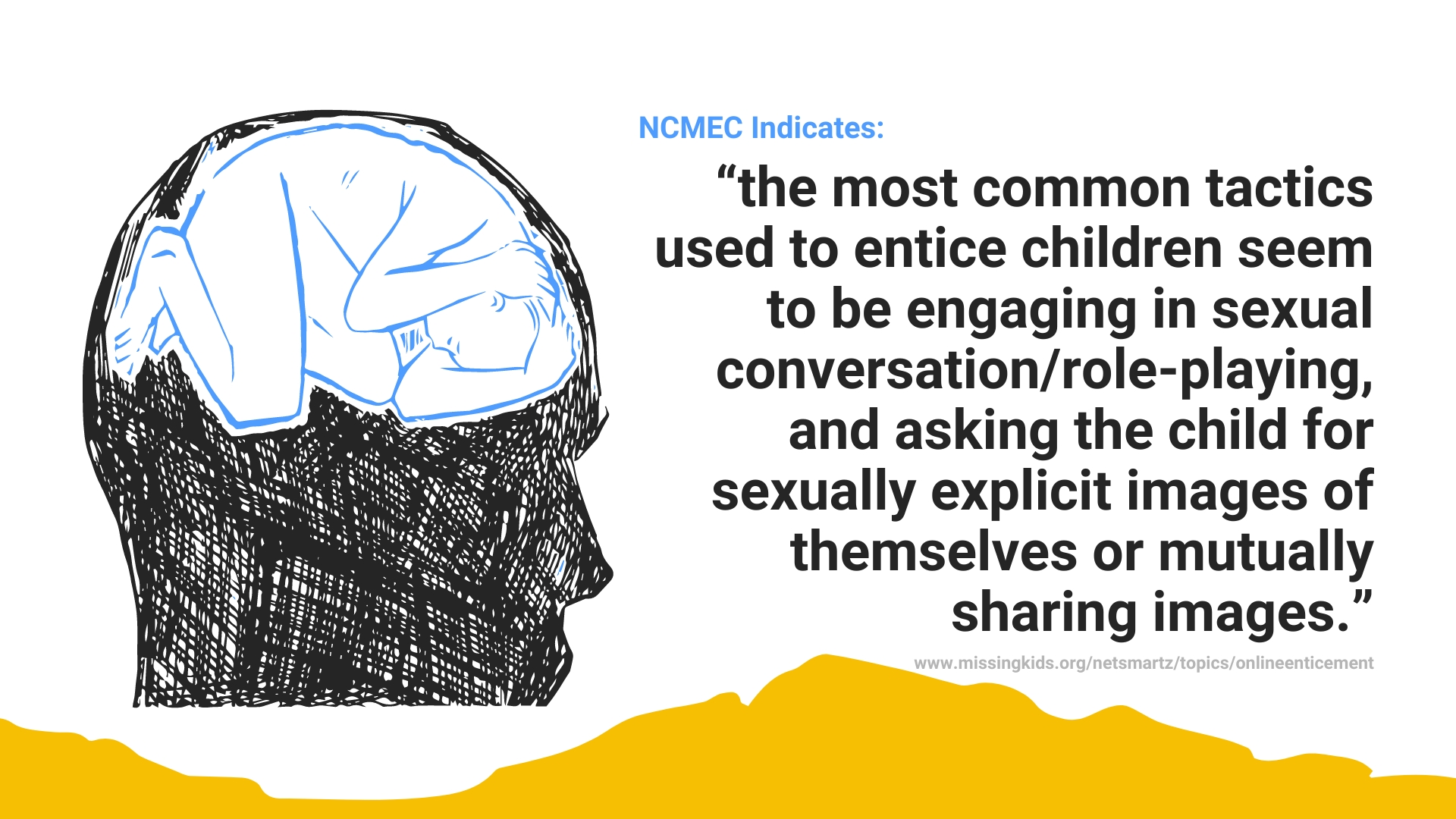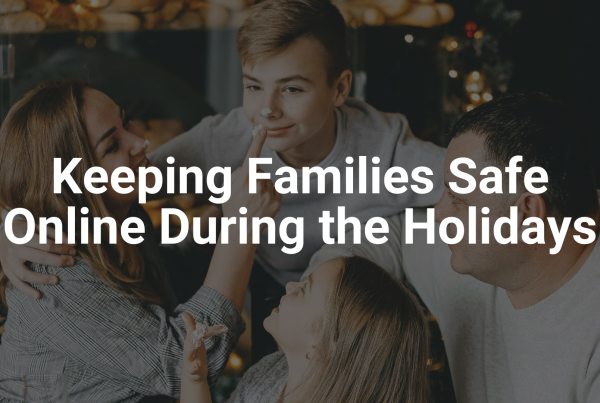Authors: Erin Maloney, LCSW
Published: October 1, 2024
As parents and caregivers, how can we identify the signs of Online Enticement in our kids? Unlike physical signs of sexual abuse, detecting behavioral signs can present a much more significant challenge, especially as our children navigate all of the usual changes associated with becoming a teenager.
As highlighted in our 2024 Impact Report story – “A Father’s Call to Help” – being alert to behavioral signs can result in…
First, let’s define a couple of terms.
Online Enticement
The National Center for Missing & Exploited Children (NCMEC) defines Online Enticement as “an individual communicating with someone believed to be a child via the internet with the intent to commit a sexual offense or abduction.” The concept of online enticement is an expansive category of online exploitation, and it includes sextortion.
Sextortion
Sextortion of our kids occurs when a predator uses threats or manipulation to lure them into sharing sexually explicit images. Even if the predator doesn’t have physical access to our kids, they still often experience emotional and psychological damage from these interactions. Sextortion can happen on any platform where a conversation can take place, such as social media, messaging apps, gaming platforms, etc.
The Innocent Lives Foundation’s CEO, Chris Hadnagy was published in Your Teen for Parents regarding the topic of sextortion. Read the article here for more detailed information.
If you want additional research, read this report from the US Department of Justice.
How To Spot The Behavioral Signs In Our Kids
Most of our kids need to be able to access the internet for a variety of reasons and we can’t always be over their shoulders. That is why behavioral signs are critical to watch out for:
-
- if your child or their friend tells you about abuse, directly or indirectly
- sexual knowledge or behavior inappropriate for your child’s age
- going to bed fully clothed
- experiencing regressive behavior, such as a sudden return to bed wetting or thumb sucking
- nightmares
- self-harming or risk-taking behavior, such as drug or alcohol dependency
- suicide attempts
- unexplained accumulation of money and gifts
- changes in your child’s hygiene, such as refusing to bathe or bathing excessively
- having trouble in school, such as absences or drops in grades
- running away from home or school
- extreme mood swings
- new violent/aggressive behavior
There are many more physical, behavioral, and emotional signs, but since you are the expert on your kids, you will most likely have a “gut instinct” to know that something doesn’t feel right. Listen to your “gut.”
How To Stop Online Enticement
Immediate first steps:
- Cut all avenues of contact with the predator until authorities are notified, even if this means keeping them offline.
- Monitor communications to ensure there is no future contact with the predator.
- Do not delete messages; they may be needed later.
- Check the data privacy and online safety settings available on gaming and social media platforms. If you struggle with how to do this, we have a Guide to Monitoring Children’s Online Devices for you to reference.
- Never threaten the predator or take the law into your own hands. Please leave this to law enforcement and/or your local child protective agency.
Seek help: Even if you feel confident that you can handle this situation on your own, we encourage you to seek professional intervention. Why? Personal stability can be challenging to maintain during such times, and having an experienced advisor is wise. Please don’t let fear or embarrassment prevent you from seeking help. When you contact authorities to report abuse, your name is not released to the family or person involved.
Talk to your child: Talk to your kid fairly soon if you notice a change in their behavior or if they start reacting in new ways. Having open, friendly, and age-appropriate conversations allows your kid to trust you and feel comfortable telling you if they don’t feel safe, even online when they are in their home. Let kids know it’s okay to tell you something, even if it’s upsetting. If you would like to learn how to have these conversations with your kids, please invite the ILF to present to your group by using our form here.
Having open, friendly, and age-appropriate conversations allows your kids to trust you and feel comfortable telling you if they don’t feel safe, even online when they are in their home. Let your kids know it’s okay to tell you something, even if it’s upsetting or makes them uncomfortable.
We acknowledge that starting and maintaining these conversations with your kids can be daunting. Here is an excellent video to help you get started or provide you with new ideas
If you would like personal instruction on learning how to have these conversations with your kids, please invite the ILF to present to your group by using our form here.
Additional information
If you suspect that a kid is experiencing abuse, call or contact:
-
-
- Call 911 if a child is in immediate danger.
- Call your local child protective agency, police, or hospital to make a report.
- Call or go online to The Child Help National Child Abuse hotline (1-800-422-4453), open 24/7, to help explain the process.
- You can reach out to your pediatrician, who can also help direct you in cases of child abuse.
- Consider reaching out to a religious or spiritual advisor, who can provide counseling and support.
-









